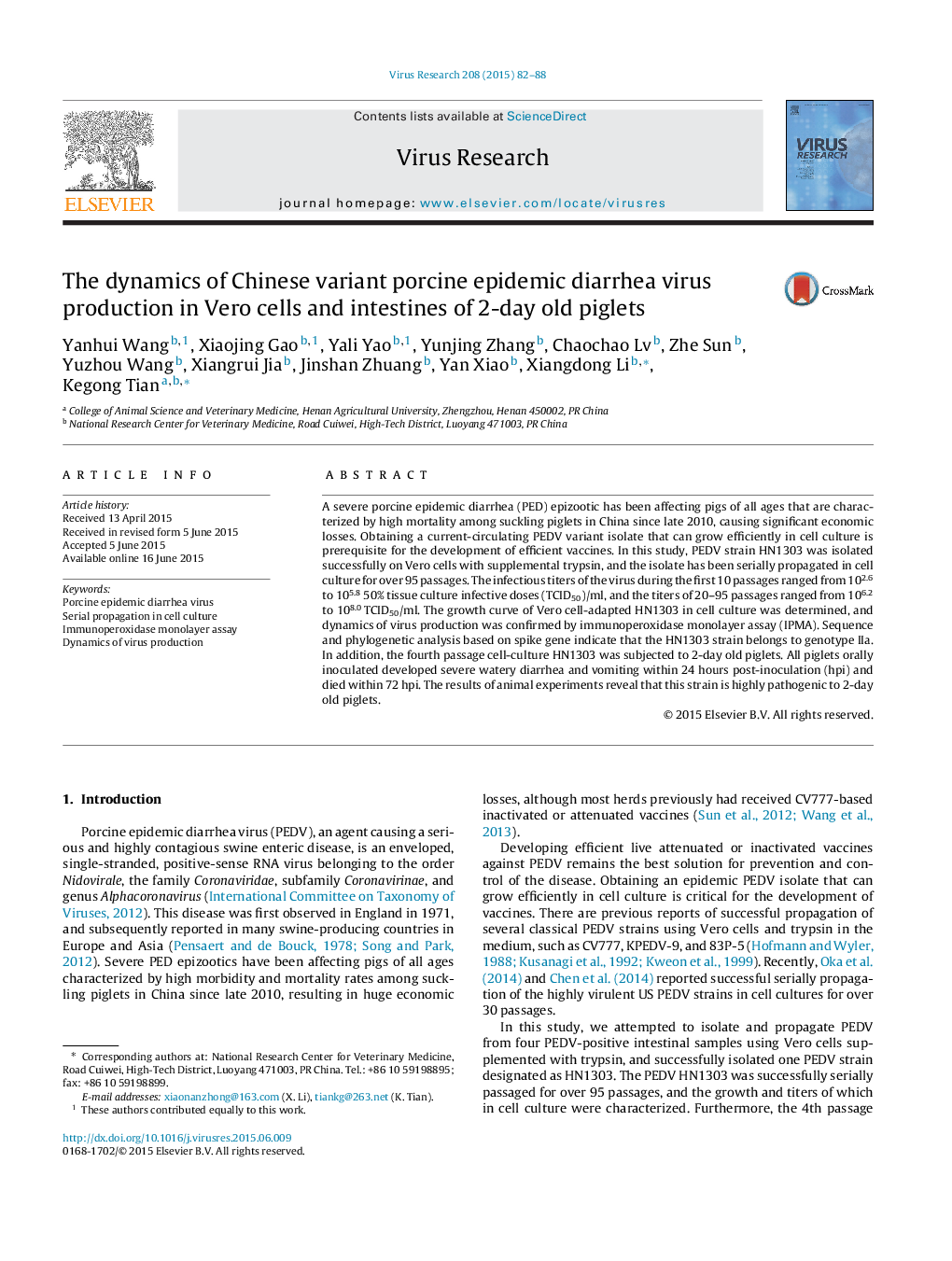| Article ID | Journal | Published Year | Pages | File Type |
|---|---|---|---|---|
| 3428117 | Virus Research | 2015 | 7 Pages |
•A highly pathogenic PEDV variant was successfully isolated on Vero cells from intestine samples of affected pigs.•The virus titers of different passages were determined during virus serial propagation on Vero cells.•The dynamics of virus production was delineated on Vero cells within the infection of 27 h by IMPA.•The dynamics of virus production in intestine tissues of 2-day old PEDV-infected piglets was visualized by immunochemistry staining.
A severe porcine epidemic diarrhea (PED) epizootic has been affecting pigs of all ages that are characterized by high mortality among suckling piglets in China since late 2010, causing significant economic losses. Obtaining a current-circulating PEDV variant isolate that can grow efficiently in cell culture is prerequisite for the development of efficient vaccines. In this study, PEDV strain HN1303 was isolated successfully on Vero cells with supplemental trypsin, and the isolate has been serially propagated in cell culture for over 95 passages. The infectious titers of the virus during the first 10 passages ranged from 102.6 to 105.8 50% tissue culture infective doses (TCID50)/ml, and the titers of 20–95 passages ranged from 106.2 to 108.0 TCID50/ml. The growth curve of Vero cell-adapted HN1303 in cell culture was determined, and dynamics of virus production was confirmed by immunoperoxidase monolayer assay (IPMA). Sequence and phylogenetic analysis based on spike gene indicate that the HN1303 strain belongs to genotype IIa. In addition, the fourth passage cell-culture HN1303 was subjected to 2-day old piglets. All piglets orally inoculated developed severe watery diarrhea and vomiting within 24 hours post-inoculation (hpi) and died within 72 hpi. The results of animal experiments reveal that this strain is highly pathogenic to 2-day old piglets.
